‘Tell him to bring Coke and chocolate’
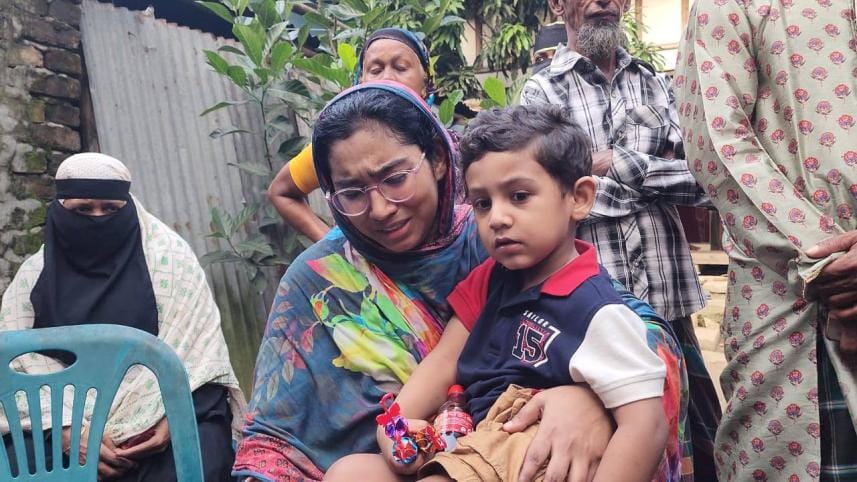
"Daddy hasn't come home yet. Where is Daddy? Tell him to bring Coke and chocolate for us," pleaded two little children -- unaware that their father will never again return home with their favourite treats.
Their mother, Irene Akter, could barely speak through her tears.
"We are not rich, but he made us feel like we were. Every day, he spent about Tk 2,000 on us -- outings, little treats for the children. Now it's all gone… everything is gone," she said, sobbing.
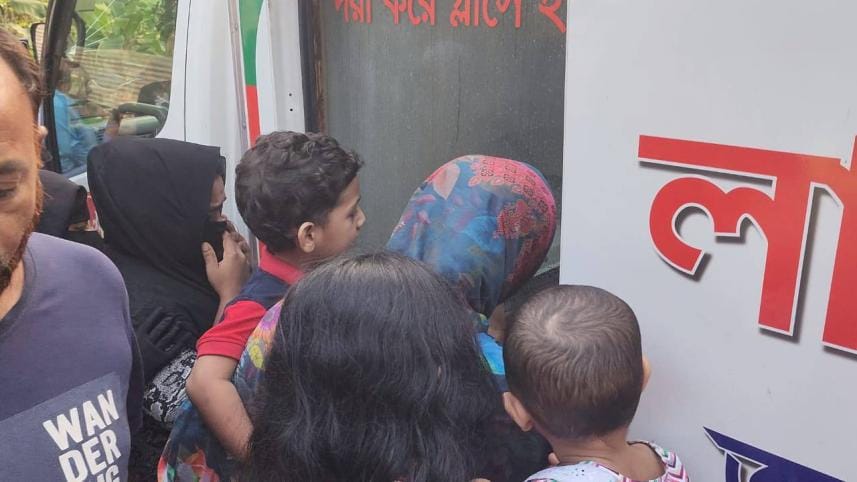
The coffin carrying Abul Kalam Azad, 35, arrived at his ancestral home in Ishwarkathi village, under Shariatpur district, around 2:00am on Monday. Since then, grief has blanketed the household and the entire neighbourhood.
The body came in a freezing van. Through a small glass window on the van's side, relatives and neighbours tried to take one last look at Azad. But the glass kept fogging up from the cold. Irene kept wiping it clean with her trembling hand.
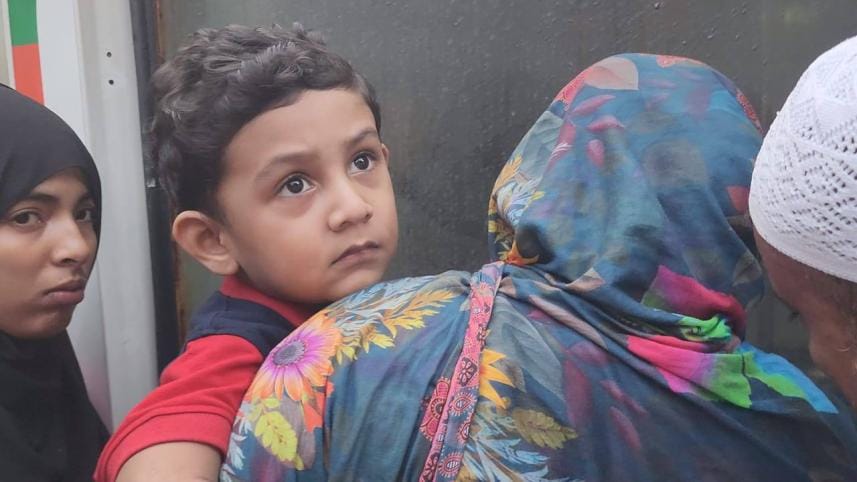
"Where have you gone, leaving your children orphans? Who will buy them Coke and chocolate now?" she cried.
"This thing (metro rail bearing pad)… if it had been handled carefully, responsibly, I wouldn't have lost my husband," Irene said. "The government should have ensured safety. People walk under those lines every day. Why didn't they act responsibly?
"Today, my husband died; tomorrow, it could be someone else. Why must people die like this? No woman should become a widow like me. No child should lose their father like this."
Irene said her children, Mohammad Abdullah, 5, and Suraiya Akter, 3, are still waiting for their father.
"Since yesterday, they've been looking for him. They don't understand that he's gone forever. In a little while, they'll ask me again, 'Mama, Daddy hasn't come -- where is he? Tell him to bring Coke and chocolate.' They don't know he'll never bring those again."
When asked how she learned of the tragedy, Irene said quietly, "I got a call around noon yesterday. They said my husband had an accident and was admitted to Shaheed Suhrawardy Hospital in Dhaka. I didn't know then he was already gone."
She paused before adding, "We may be ordinary people, but he never let his children feel ordinary. He worked honestly, spent everything on them. Now it's all gone… everything is gone."
Asked whether she expects any help from the authorities, Irene shook her head. "I don't want anything -- just give me back my husband, my children's father. Let my children laugh with him again. Who will look after them now?"
In the yard, Azad's sister-in-law Asma Begum wept uncontrollably. "After his parents died, I raised him like my own son. He called me 'mother,'" she said.
"Yesterday morning, he called and said, 'The ban on Hilsa fishing is over. Buy some Hilsa from the Padma River for me. I'll come home Thursday and take them.' But instead of him, his body came home today. Who knew that would be our last conversation?"
Abul Kalam Azad, son of Jalil Chokdar, was the youngest of four brothers and six sisters. His parents died 20 years ago. To support his family, he went to Malaysia for work in 2012. After returning, he married Irene in 2018 and later worked with a small travel agency in Dhaka. The family of four lived in Narayanganj's Jalkathi area.
On Sunday, at around 12:15pm, a bearing pad from the metro rail fell on him in Dhaka's Farmgate, killing Azad instantly.
His janaza was held Monday morning at Poragacha Islamia Dakhil Madrasa ground in Naria upazila, followed by burial at the Naria municipal graveyard around 10:00am.




 For all latest news, follow The Daily Star's Google News channel.
For all latest news, follow The Daily Star's Google News channel. 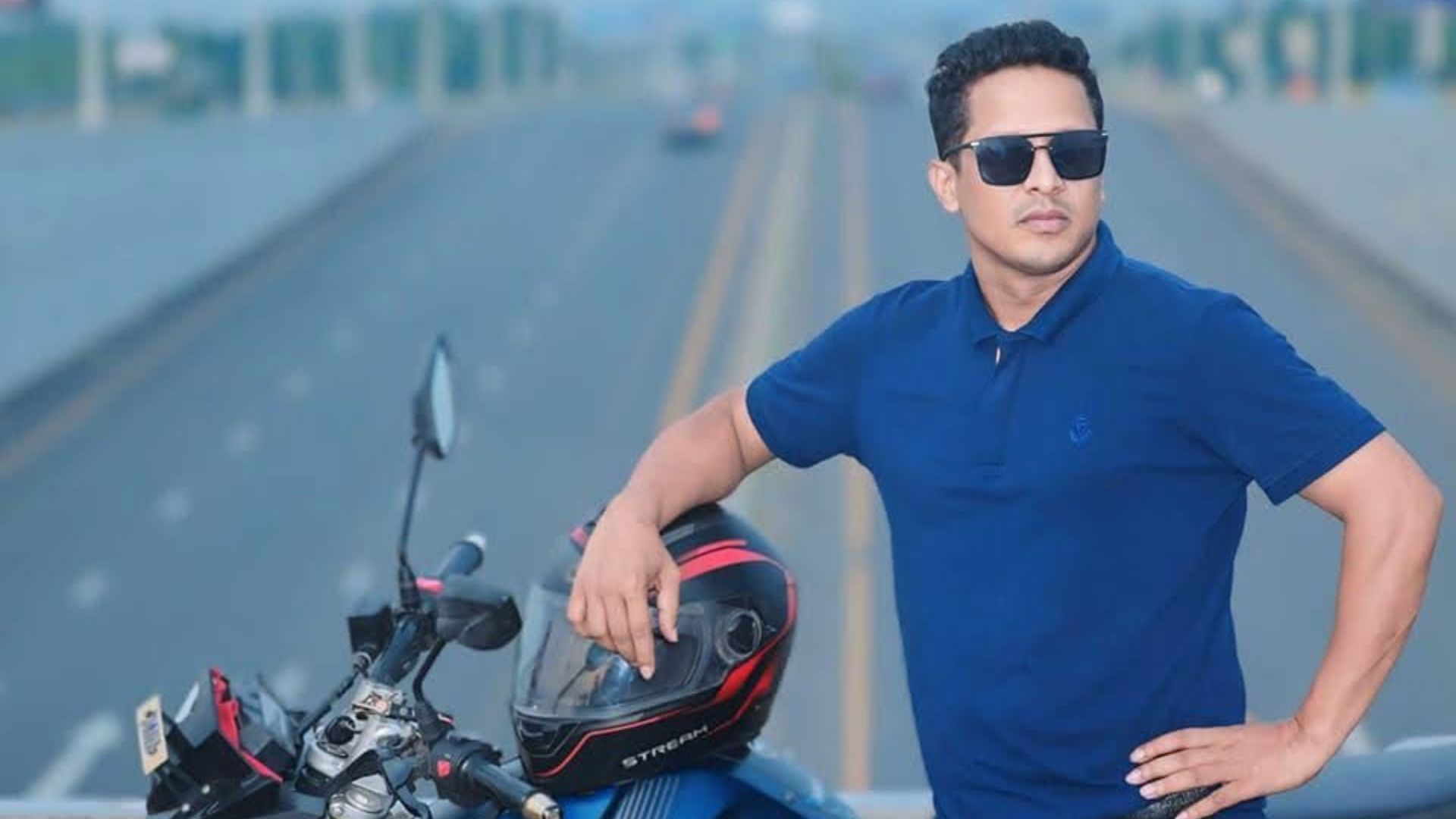
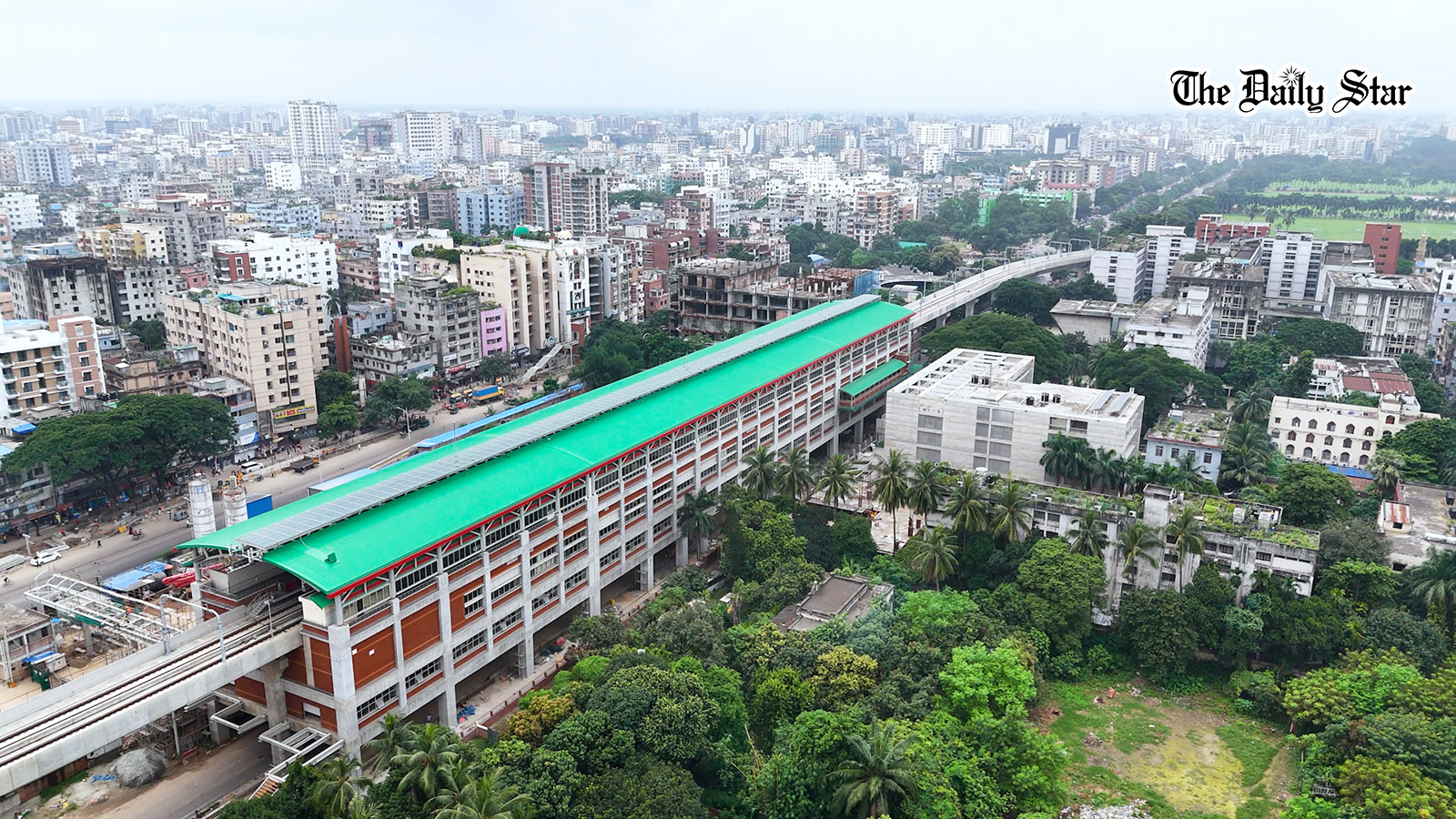
Comments